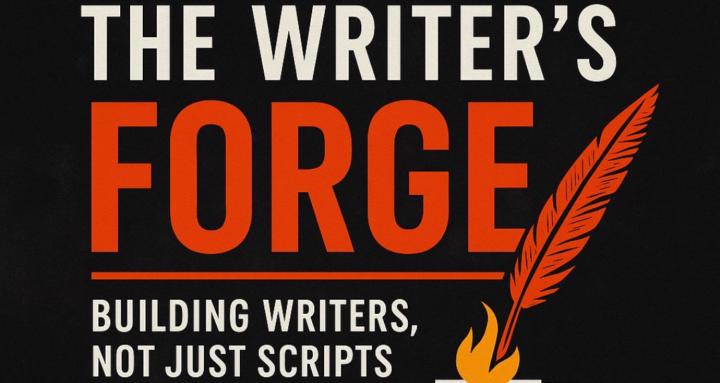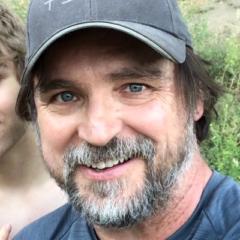25d • General discussion
J. David Stem's 10 iron clad rules for a Writing Life
1. Make me love you by page 2. You're asking me to spend an hour or two of my time reading your script. Let me know I can trust you not to waste my time by writing an opening that shows you care enough about mine to craft something beautiful or moving or terrifyingly original.
2. Description matters. Don't be glib. Write with craft. Don't waste my time with anything that doesn't truly matter. Every word should either advance plot, reveal character, or create atmosphere. If it doesn't do at least one of those three things, cut it.
3. Your brilliant idea is going to suck. That thing that felt like a gossamer cloud that would write itself is going to collapse like a popped balloon very soon after you start writing it. That's okay. It's like having children. If you had any idea how hard and expensive it would be, very few people would sign up. Your job is to stay with it, even when the inspiration is gone. To see it through the slog, even on days when you produce nothing worthwhile. Especially on those days.
4. If you feel lost and alone and stupid, that's not an indication you're lost and alone and stupid. It's an indication you're a writer.
5. Hoard your secrets. With very rare exceptions, don't talk about your ideas to other people. You don't even know what they are yet. They need to germinate and cross pollinate and wither and die on the vine and be reborn again. Keep them in your hothouse. You know that place earth was hundreds of millions of years ago, moist and hot and weird creatures crawling from the sea to the muck of earth, fighting for air, eating each other, dying and transforming. That's your creative process early on. A confused beautiful mess. The last thing you need is someone peering into your mudhole saying, "Why are you growing wings? No one's ever flown before."
6. It damn well better matter. I don't care if it's animation—Woody's love for Andy is all consuming. He's panicked at the very thought of losing it. The Cowgirl Jesse is utterly destroyed when she's left in a donation box on the side of the road. I still can't talk about that scene without crying. That love is everything. When Woody tells her he has to go back to Andy because he's still Andy's toy, she responds: "Let me guess, Andy's a real special kid. And to him you're his buddy, his best friend. And when Andy plays with you, it's like even though you're not moving, you feel like you're alive. Because that's how he sees you."
Woody: "How did you know that?"
Jesse: "Because Emily was just the same. She was my whole world."
Cut to: Emily playing with Jesse as she grows up. Eventually leaving her forgotten and under the bed, and finally on the side of the road in a donation box. All while "When She Loved Me" plays by Sarah McLachlan.
Watch that. Nothing has ever mattered to a character more. If you don't cry, maybe writing isn't for you, you robot.
7. There are going to be long dry stretches where everything you write feels terrible. Yes, I said something like that before. There are going to be more than one. The difference between you and the writer you could be is how long you can wander through the desert before you stumble onto an oasis. And yes, there will be mirages. But you are far better running 100 miles in the wrong direction than standing still. You can always rewrite bad work. Everything you write either shows you something that doesn't work or helps you stumble into something that finally does. Standing still just gets you sunburned and dead from dehydration. Keep moving.
8. Know your genre. Know what works and why. You don't have to emulate it, but you need to know why the best work in whatever area you are writing in appeals to YOU.
9. Stop trying to write what you think a screenplay should be. Stop trying to write a screenplay that sounds like every other screenplay. Instead, use this as a way to find that small voice inside you that sees things sideways in a way the rest of the world doesn't see. That isn't satisfied with the familiar. But that can take those old tropes and explode them. Whether it's horror or comedy, audiences love having their expectations subverted. You can't subvert what you don't understand. Study the greats of your genre. No one was a bigger student of the game than Mike Tyson or Kobe Bryant.
10. When in doubt, when flat up against the wall and stuck, find a scene from your favorite movie. Watch it. Then write it from memory. Write the action the way you'd describe it, so it jumps off the page to a would-be agent or executive. Write the dialogue. Feel the pacing. Then go find the screenplay online. Pretty much everything is out there. Compare what this well-paid established writer wrote in their screenplay to yours. How is it better?
Ben Franklin did this for essays. Would read one, then the next day, recreate it himself without looking. Then go back and read what he'd left out that the original writer needed to make his point. So did screenwriter Jonathan Hensleigh. I heard this from his wife, Gale Anne Hurd, who produced a project I was on. He was a lawyer who wanted to be a screenwriter. So he went through his favorite movies, recreating iconic scenes and comparing his writing to that of the original.
No matter what, when you are dead stopped with writer's block, you can always do the same.
You can also literally just read a screenplay and type out three pages of it yourself. Just to get your fingers moving across a keyboard. Keep moving across that desert. The oasis is out there somewhere. Even a little trick like this can help you find it.
These aren't suggestions. They're survival tools. Use them or keep wandering in circles.
3
5 comments

skool.com/the-writers-forge
Real mentorship from a $2.5B screenwriter. Hot-seat feedback. 10 Iron-Clad Rules. First month FREE. We are building a true Writing Community here!
Powered by



